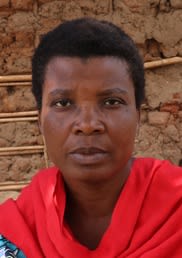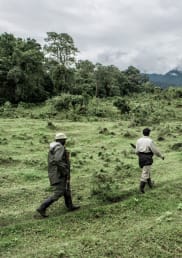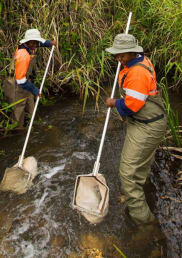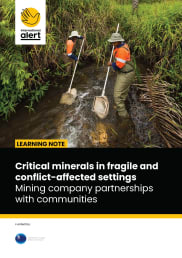COVID-19: Security forces must stop using violence and be part of the solution
In Africa as elsewhere around the world, security forces have been accused of using excessive force to impose COVID-19 lockdown measures, spreading fear and mistrust. How can they play a more positive role, especially in countries already dealing with conflict?
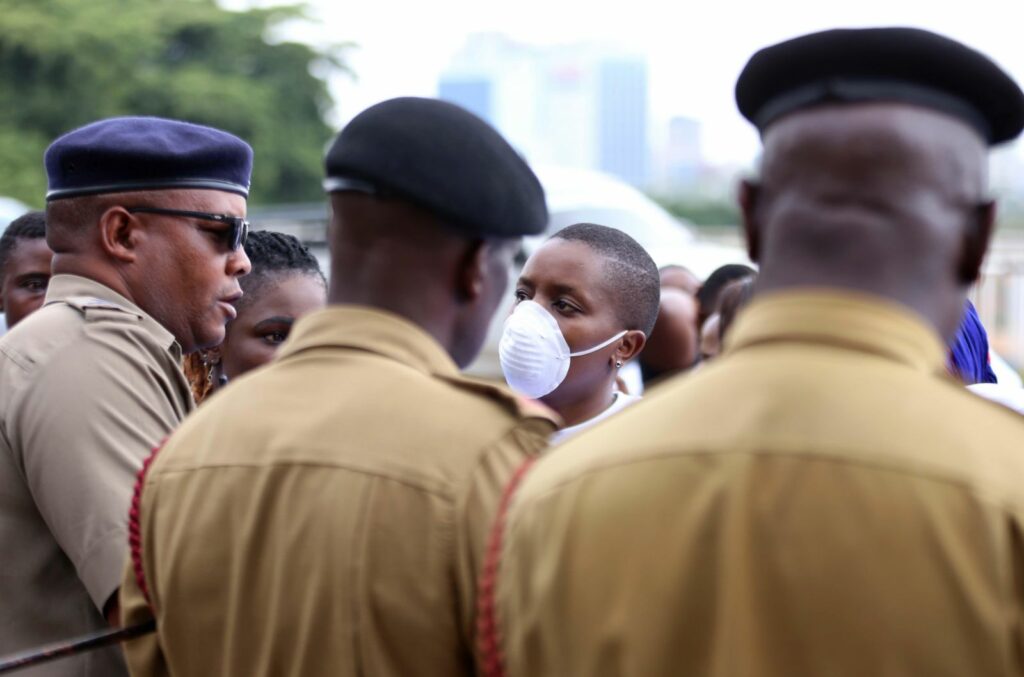
Coronavirus restrictions have required security forces across the globe to support lockdown measures and enforce emergency laws.
In many countries in Africa, the military and other paramilitary groups are being drafted in to support police in dealing with the outbreak. In South Africa, an additional 70,000 troops were deployed, the biggest such deployment since the advent of democracy in the country.
It has not taken long for alarm bells to start ringing about the widespread involvement of security forces in the response.
Both the UN Secretary General Antonio Guterres and the High Commissioner for Human Rights Michelle Bachelet have sounded warning bells over increasing security force abuses.
In April, Nigeria’s National Human Rights Commission, a government-linked agency, published an alarming statistic: the death toll from acts to enforce coronavirus lockdown measures was higher than the deaths caused by the virus across the country.
And in Kenya, after a spate of sometimes deadly incidents, President Uhuru Kenyatta was forced to apologise to citizens for security force excesses.
Echoing the crisis over systemic police violence in the US, people across Africa have suffered the brunt of poorly implemented strategies that may seem more damaging than the disease itself. There are countless examples of aggressive security force behaviour under the guise of – or facilitated by – government coronavirus containment policies: extortion, beating, detention and even killings.
How did we get here?
There are longstanding problems of mistrust between security forces and civilians in many African countries. These include a history of human rights abuses, lack of transparency and accountability, and ineffectiveness in providing security to citizens.
In Mali, Nigeria and Democratic Republic of Congo (DRC), civilian groups have even taken to forming their own ‘self-defence’ forces.
The emergency nature of deployment during an outbreak means even less oversight of security forces’ behaviour and more room for abuses. Furthermore, they are often not sufficiently trained or experienced in how to engage communities.
Across the continent, security forces are being asked to enforce policies that many ordinary people cannot follow. Basic measures, such as wearing masks in public and not going to work are simply unaffordable for the large sections of the population on subsistence incomes.
While the involvement of security forces aims to protect citizens, in such cases it is more likely to be seen as oppressive, particularly towards the most vulnerable. This reinforces long-held grievances against the state and mistrust of security services, particularly in countries with a history of military rule. In countries where the security sector is dominated by a particular group, its role in abuses may reinforce intercommunity tensions.
Thus for many civilians, the sight of armed forces patrolling and enforcing restrictions does not provide reassurance that their government is taking decisive and necessary action but has the opposite effect of engendering fear and suspicion.
This fear is compounded by the spread of rumours on the virus and lack of access to reliable, updated official information, since many people live outside of urban areas and/or lack access to TV and internet.
Coronavirus moves invisibly through communities. To gain citizen buy-in on the need for containment measures and compliance with security forces, there must be a shared understanding of the severity of the threat, which is currently lacking in many settings.
What can be done?
Mutual trust between those in power and those whom they are supposed to serve is an essential element of both peace and effective emergency response, while mistrust is a typical predictor of conflict.
If there is a deficit of trust in public institutions, including the army and the police, during ordinary times, they will inevitably fail during a crisis.
But institutions that are responsive to citizen needs can play an effective role and adapt to new circumstances, even under tremendous strain. Security forces are mandated to provide the most basic and essential of state services: physical security. They are therefore in a good place to build trust and collaboration between citizens and the state
Lessons from other crises demonstrate this. During the Ebola epidemic in Liberia for example, trust in the government was very low (a legacy of the country’s civil war), which led many people to question whether the disease was real. However, spurred by community initiatives, the government shifted its top-down approach to one of more collaboration with its citizens, which “played a vital role in preventing the worst-case scenario from coming to pass”.
This highlights that, in dealing with a crisis like COVID-19, we need measures that are traditionally part of peacebuilding and conflict transformation: engaging communities, building trust and improving state–citizen relations.
International Alert has been working with its local partners to engage security forces, local authorities and citizens (including women, youth and other groups typically left out of decision-making processes) and ensure that security responses are more tailored towards enhancing trust and collaboration, addressing community needs and dealing with other root causes of conflict.
In central and northern Mali, we rebuilt confidence between communities and security forces, after this relationship was torn apart by years of violent conflict. Recently, community leaders and local security forces asked us to continue this work in the wake of COVID-19. In the towns of Mopti and Macina, security forces are now engaging with communities to make decisions on setting up temperature control checkpoints, maintaining public order and respecting social distancing guidelines.
Similarly in Nigeria, security forces involved in our trust-building programmes are now working closely with community and traditional leaders, including consulting women, to ensure COVID-19 restrictions are meeting their needs.
Such approaches can guide better responses to COVID-19, in Africa and beyond.
In peacebuilding, as in a global pandemic, prevention is better than cure. Our efforts need to go beyond putting in place measures to mitigate and sanction human rights abuses committed by security forces during this coronavirus outbreak.
We must create relationships of mutual trust, accountability, and collaboration. The world and its societies will inevitably face more severe crises, whether from new diseases, climate change or other global threats. Security forces will always be part of the state governance architecture.
The striking images of global protests against systemic police violence in the USA are a stark reminder of the critical role that security forces play in shaping the social fabric, whether in bringing communities together or amplifying disparities.
We must invest in peacebuilding within the security sector, to create a fertile ground for constructive participation of security forces in everyday life as in emergencies.
Watch an interview with Cindy on France 24 about security forces’ response to COVID-19 in Africa.

